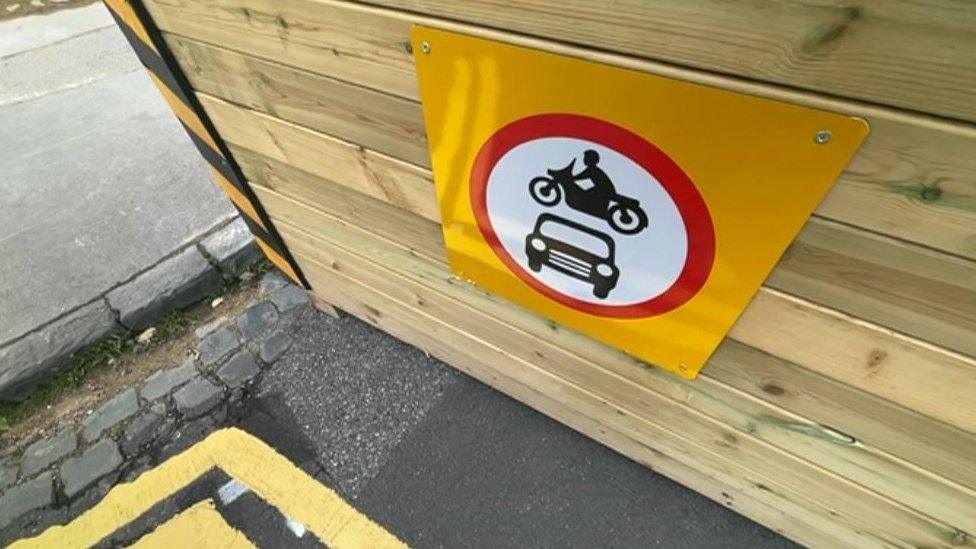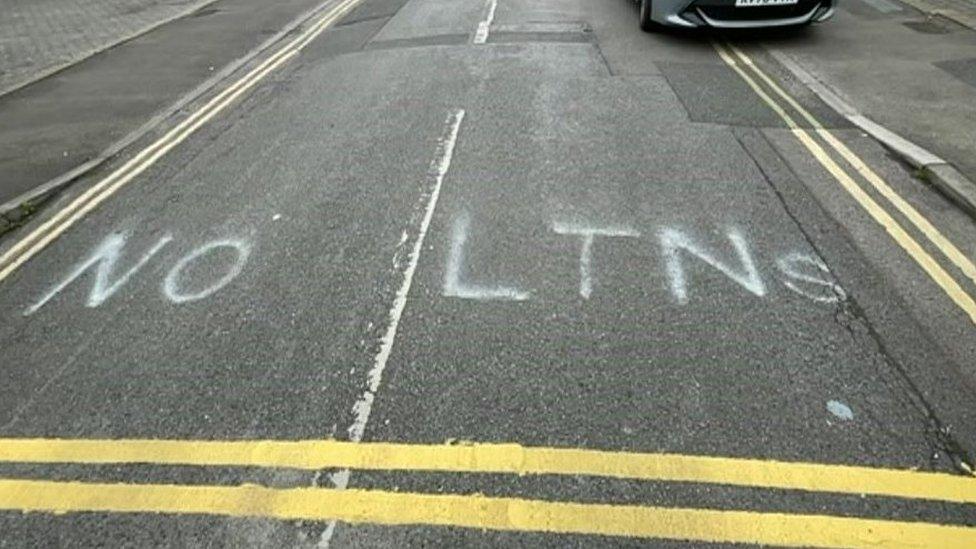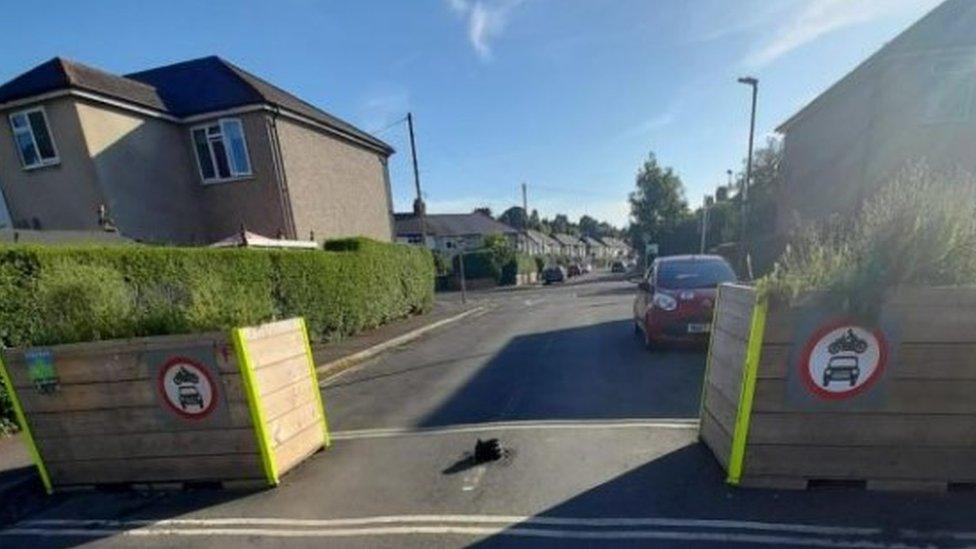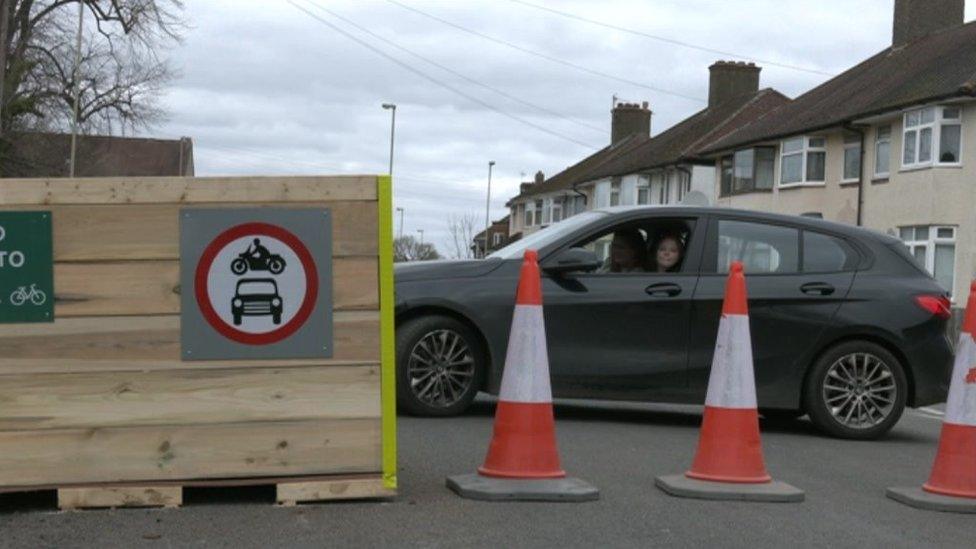Oxford's controversial low-traffic scheme made permanent
- Published

The council will now consider an ANPR scheme to allow certain vehicles to use the LTNs
A controversial scheme designed to reduce traffic congestion but which critics say has divided communities is to become permanent.
Oxfordshire County Council voted to install the Low Traffic Neighbourhoods (LTN) in Cowley permanently following a trial in the city.
Councillors met on Tuesday and heard a wide range of views from the public before voting.
The council said it plans to make improvements to the LTN by spring 2023.
The scheme, which has at been in place at Church Cowley, Temple Cowley and Florence Park since March 2021, has proved controversial with incidents of vandalism.
In a different part of the city where another LTN trial is underway police were called after reports of an assault.
Last week the council received two petitions with almost 6,000 signatures against the traffic-calming measures.
'Unfettered access'
On Tuesday it heard testimony from various members of the public both for and against the scheme.
Volunteer St John's Ambulance driver David Henwood said it failed to meet the needs of local blue badge holders and that the scheme should provide "unfettered access" to essential workers.
Meanwhile, Ella Sinclair said she and her children lived just outside an LTN and thanks to the scheme the "school run had gone from being a terror to a joy".

The LTNs have angered some residents in the city - but they do have supporters too
Representing the taxi industry, Bashir Ahmed said since the LTN was introduced he was unable to provide an "efficient and professional" service to his customers.
Michael Buick, a local furniture maker, who could "only afford a dirty old diesel van" said he was a keen cyclist who was worried about climate change and urged the council to make the "difficult change" and keep the LTN going.
Councillor Charlie Hicks told the meeting that overall people wanted the scheme to stay.
"The common fear is that it pushes traffic onto the main roads, but that doesn't happen long-term."
Mr Hicks said he had seen children playing basketball and skateboarding in the streets and the purpose of LTNs was about changing the purpose of the streets and prioritising peoples' lives.
The council voted to undertake further community and stakeholder engagement to improve the scheme by next spring.
It also agreed to look at replacing some hard closures with ANPR (Automatic Number Plate Recognition) controlled traffic filters.

Follow BBC South on Facebook, external, Twitter, external, or Instagram, external. Send your story ideas to south.newsonline@bbc.co.uk, external.
- Published14 July 2022

- Published20 May 2022

- Published27 May 2022
